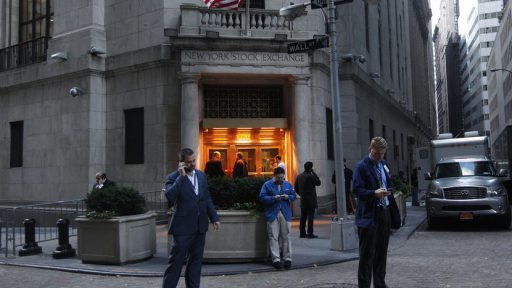- Home
- >
- Daily Accents
- >
- The stock market’s oldest indicator just flashed red

The stock market’s oldest indicator just flashed red

I hate to rain on this parade. But the latest lurch upwards in stock prices has just taken market valuations up into the skybox levels, according to the market timing measure with the longest pedigree on Wall Street. It’s just gone from flashing amber to flashing red — meaning, if it’s right, that there is now a significant and rising risk of a crash, and a bigger risk of simply very poor returns.
This has little to do with President-elect Donald Trump, by the way — and much more to do with President Ulysses S. Grant and all his successors.
This is about the same level that the market hit just before the crash of 1929, and is far higher than was seen in 2007, for example, or during the ill-fated boom of the late 1960s. The last time we saw the stock market this expensive on this measure was early in 2002 — just before stocks plummeted.
Comparing stock prices to earnings of the past 10 years, rather than just one year, is a metric known on Wall Street as the “cyclically-adjusted” price to earnings ratio, or CAPE. It is also known as the “Shiller” PE, after Yale Shiller, who won a Nobel prize for his research into it. His data shows it has been a strong indicator of future stock returns going back to 1871 and the days of President Grant.
Yes, CAPE has plenty of critics. Many people on Wall Street will tell you to ignore it, mainly, they say, because it’s been “wrong” for a long time. The CAPE has said stocks are overvalued since the mid-1990s, they point out. And yet shares keep going up.
Well, maybe. But as it happens a new research paper by two economists strikes a strong blow on behalf of the CAPE.
In a nutshell: Investors shouldn’t flee stocks simply because the Shiller PE is above average. They shouldn’t flee stocks even when the Shiller PE is way above average. But history has said they should flee stocks when the Shiller PE is at extreme levels — like now.
Only when the CAPE is “higher than 27.6”, they conclude, has the stock market proven to be a really bad investment.
And, like I said, it just hit 27.9. According to Dimitrov and Jain, extremely high CAPEs like today have historically been followed by very high volatility, and really bad 10-year investment returns.
The difference between their analysis and the simplistic view of the CAPE is both real and meaningful.
Nonetheless, at this point history says you’d need another late 1990s dot-com-like mania to stay bullish. Over the past 150 years, it has generally been an extremely poor move to invest in U.S. stocks with the CAPE at these levels. But maybe this time is different, eh?
 Varchev Traders
Varchev Traders Read more:
If you think, we can improve that section,
please comment. Your oppinion is imortant for us.











